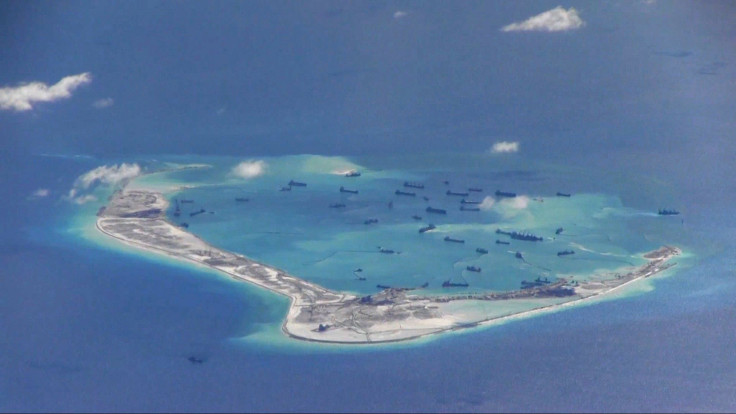South China Sea Dispute: Beijing's Territorial Claims Are Illegal, Philippines Claims

The Philippines says it is prepared to undermine China’s biggest defense when it comes to Manila’s case against Beijing over conflicting claims in the South China Sea. Filipino officials hope to eventually prove that China’s so-called “nine-dash line” territorial claim is illegal during a United Nations-backed tribunal that begins Tuesday in the Netherlands.
Despite China’s refusal to participate in the arbitration case, Beijing has made its case clear against the Philippines outside of the courts, saying that the issue is primarily about land, not the sea. According to Filipino news site Rappler, this means that China rendered the case beyond the scope of the United Nations Convention on the Law of the Sea. The Philippines, however, has claimed that the case is predominantly about maritime boundaries, pointing specifically at the rights of Filipino fisherman, among other things, in the disputed territory.
"Once the jurisdiction is won by the Philippines, and the [United Nations Convention on the Law of the Sea] tribunal says it has jurisdiction, then we practically know the tribunal will strike down the 9-dash line," Senior Associate Justice Antonio Carpio of the Philippine Supreme Court told Rappler in an interview. “Ninety-nine percent of legal scholars outside of China think that way.”
China’s reluctance to participate in the United Nations-backed tribunal is rooted in the fact that Beijing says the international body doesn't have any jurisdiction to make legal claims in the bilateral issue, and has no right to make rulings. Last December, China’s Ministry of Foreign Affairs published a position paper explaining why Beijing rejected Manila’s claims to the United Nations, even calling moves made by the Philippines to resort to arbitration as bad practice. Ahead of Tuesday’s tribunal, Chinese authorities reiterated their refusal to make a case in front of the court because it runs against the “morality and basic rules” of international relations.
“We need to resume our bilateral negotiation without any condition,” Zhao Jiahua, Chinese ambassador to the Philippines, said Monday, according to state-run Xinhua News ahead of the trial. “I think this is the best way that we can discuss how to peacefully settle these disputes.”
He added: “Our door for bilateral consultation and negotiation is still open and will be open forever.”
Despite China’s demands to maintain geopolitical conversations on a bilateral level, Filipino officials said that the international forum is the most appropriate place for Manila to stake its claim because it gives the island nation a more level playing field.
“In the UNCLOS tribunal, warships, warplanes, atomic bombs don’t count,” Carpio said, referring to China’s growing naval strength in the area that dwarfs the Philippines. “They just decide the case based on the law of the sea. And that is the form where we are on equal footing with China, despite China’s military strength.”
Though China’s 9-dash line, a Chinese-imposed maritime demarcation that encompasses 85 percent of the South China Sea, including areas claimed by countries like the Philippines, Vietnam and Brunei, has been disputed by governments in the past, the U.N. tribunal will be the first time it is examined under international law.
© Copyright IBTimes 2024. All rights reserved.






















